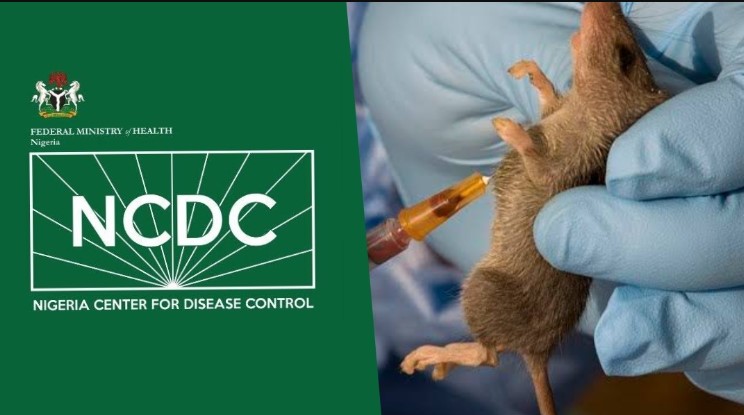By Iyemah David
The Nigeria Centre for Disease Control and Prevention (NCDC), said it has recorded 14 new confirmed cases with one death following the outbreak of Lassa Fever in Ondo, Edo and Bauchi states.
Director General of NCDC, Dr Jide Idris, disclosed this in an interview on Tuesday in Abuja.
He said the cases were recorded in the three states between May 6 and May 12 this year, adding that people between the ages of 31 to 40, were predominantly affected by the disease.
He said that 28 states out of the 36 states have recorded at least one confirmed case spread across 125 local government areas in 2024.
“The 64 per cent of all the confirmed cases were from the three states of Ondo, Edo, and Bauchi while 36 per cent was reported from 25 states.
“Of the 64 per cent of these confirmed cases, Ondo accounted for 25 per cent, Edo 22 per cent, and Bauchi 17 per cent,” he said.
The agency said that the National Lassa Fever Multi-Partner, Multi-Sectoral Incident Management System, had been activated to coordinate response at all levels of the Emergency Operation Centre (EOC).
Idris, who highlighted some challenges in the fight against Lassa Fever, added that late reporting of cases and poor health-seeking behaviour were key in the clinical management of the disease.
“Others were poor environmental sanitation conditions, and poor awareness observed in high-burden communities,” he said.
The NCDC boss noted that every individual irrespective of age are susceptible to Lassa fever, stressing the need for caution to avoid the devastating effects.
Dr Idris said that as the agency intensified efforts to raise awareness about Lassa fever, it was imperative for people to take proactive measures to safeguard public health.
He urged vigilance among the citizens at all times to avoid exposing their households to the dangers of the disease.
“The virus, transmitted through contact with rat excreta or infected individuals, poses a significant risk to public health.
“Setting traps to eliminate rats within households is nice. This proactive step reduces the risk of exposure to infected rodents.
“Refrain from handling rats, whether dead or alive, with bare hands. This simple precautionary measure significantly minimises the chance of infection.
“Exercise caution when consuming food items or fruits that may have been exposed to rat or rats might have access to,” he said.
He said that by avoiding such items, individuals could mitigate the risk of ingesting contaminated food sources.
The director general said that as the battle against Lassa fever continues, Nigeria plays a crucial role in combating the disease.




